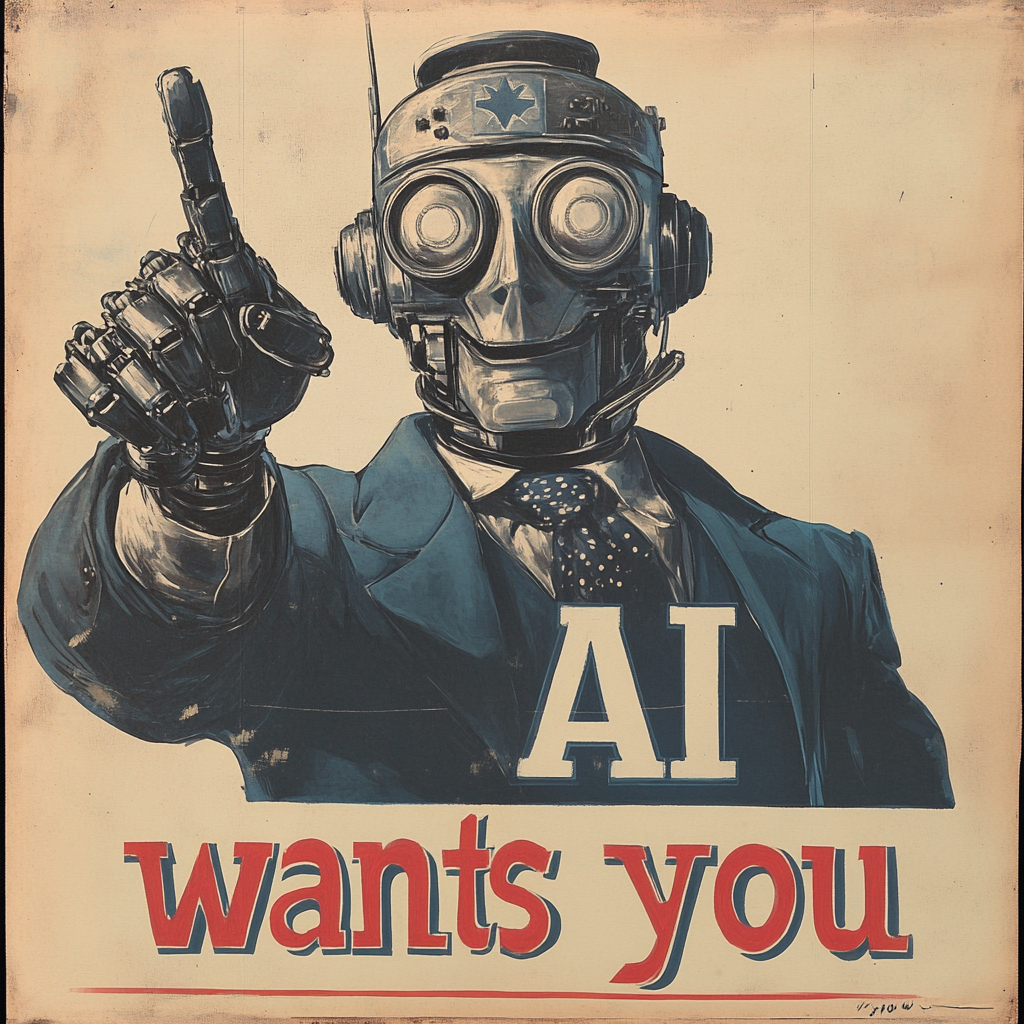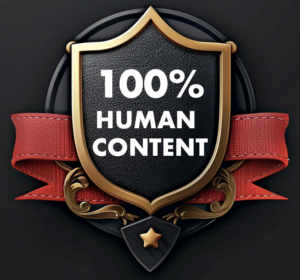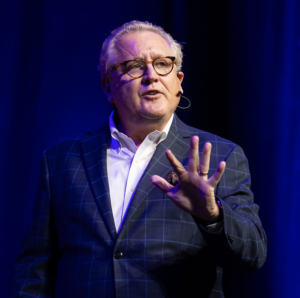
The AI tsunami isn’t coming—it’s here. And it’s serving up more jaw-dropping “holy cow” moments than a magician’s convention. One thing is clear: The balance of traditional marketing work is rapidly and permanently shifting to the bots. If you’re immersed in this AI world as I am, you’ve probably gone through the mental gymnastics of trying to figure out how this will sort out. What is the role of humans in an AI world?
Where will humans land — an existential question, and unanswerable, because nobody knows for sure what’s coming next. Even the experts can’t foresee the next year, let alone our future career path in an AI-dominant world.
However, I think certain truths hold up in any circumstance. Looking at the future through these filters, we could make some assumptions about where our marketing careers might go.
Here are truths I hold on to as I think about the future of my own career in marketing. I hope this helps you, too.
1. Our work as art
Think about what moves you. Really moves you. That hand-crafted bowl. The novel that kept you up at night. The artwork that you view over and over again. Notice something? They’re all hewn from human experience, not algorithms.
Art is a way of interpreting the human experience. AI might simulate a human experience. In our sci-fi fever dreams, it might one day even believe it has a human experience. But only humans can interpret a human experience.
Recently, an oil painting created by an AI-fueled humanoid robot sold for $1.6 million. I think this was a one-off … a purchase driven by a novel carnival trick. I deeply believe that true art which reflects the human experience will remain important.
This suggests that our common and competent marketing work, which AI will certainly replace, needs to come closer to human art to be noticed and relevant.
To outmaneuver AI, how can your work begin to approach the emotional impact of art?
I think this is one of the reasons young influencers have become multimedia superstars. They expose their lives as performance art.
2. The critical importance of personal brand
 When ChatGPT first hit the scene, I called tech analyst Shelly Palmer to get his view. “It’s terrifying,” he told me. “I just asked ChatGPT to compose a blog post in my writing style, and it did a great job. I’ve blogged almost every day for 15 years, and it wrote a perfect post in three seconds. I’m 80% replaced.”
When ChatGPT first hit the scene, I called tech analyst Shelly Palmer to get his view. “It’s terrifying,” he told me. “I just asked ChatGPT to compose a blog post in my writing style, and it did a great job. I’ve blogged almost every day for 15 years, and it wrote a perfect post in three seconds. I’m 80% replaced.”
While that “80%” quote certainly seems terrifying, a more interesting question is, “What is the 20% that is NOT replaceable?”
It’s his personal brand.
Shelly is known, loved, and respected. In a chaotic world of misinformation and deep fakes, we will always depend on a human being for insight and truth. Shelly has nothing to worry about. He cannot be replaced by AI because of his powerful personal brand.
Perhaps you’ve noticed that I’ve added a “100% Human Content” badge to my posts. I want to assure you that this is me. You can count on me. I’m not going away. I still matter.
For the past 10 years, I’ve shouted from the rooftops that your personal brand is the ONLY defense we have against the bots. Are you a trusted and beloved presence cutting through the noise of your marketplace?
It’s not too late for you to start this personal branding journey. The best place to start is my upcoming Personal Branding Master Class, which is the finest of its kind anywhere.
How do you thrive in an AI world? Your personal brand is your oxygen.
3. Accountability
We’ve already seen spectacular AI failures. In the business world, accountability for problems ultimately rests with a human, not a machine. No board of directors or government regulator will accept an excuse blaming a machine for scandal or a financial irregularity.
Beyond legal considerations, marketing often requires nuanced cultural understanding and sensitivity.
Humans need to evaluate AI outputs for brand safety and appropriateness.
As far as I can see into the future, a human has to be accountable for marketing performance and results.
4. Adding awe
Have you ever gone to a music event by yourself? Perhaps it was a pleasant experience. Now compare that to attending a concert with friends who are singing with you, dancing, and jumping for joy. The difference is a state of awe called collective effervescence, a powerful emotional contagion that occurs when you bring people together in a joyful way.
This idea is a big part of my book Audacious: How Humans Win in an AI Marketing World.
Most people today consume their news, music, and music alone, on a screen, or through earbuds. We are in an emotional desert devoid of shared experiences. Our customers long to belong. How can we create uniquely human shared experiences — perhaps the most important marketing opportunity going forward!
A thesis of the new book is that humans will continue to thrive in the AI marketing world because we can uniquely bring humans together to create awe. No bot can do that.
5. The human foundation of marketing
I my first college marketing class, I opened Principles of Marketing by Dr. Philip Kotler, and read these words: Marketing is a combination of Psychology, Anthropology, and Sociology.
Isn’t that the coolest thing ever? Marketing is All Things Human. I was hooked and knew that marketing would be my career path.
Today, the marketing conversation is dominated by concepts like algorithms, content optimization, and, of course, AI integration. But at its heart, marketing still moves through this nuanced concept of “all things human.”
As I reflect on my career, I can’t fathom how AI would replace the human factor of my most effective marketing work:
- During my corporate career, an off-hand remark during a customer visit helped me connect the dots in a new way that led to a significant new product innovation and a two-year advantage over competitors.
- My company hired an anthropologist to observe people using our products in their homes. One revelation led to a blockbuster new product application.
- I helped negotiate a $5 billion contract. AI could have helped with ideas, strategies, and contract language, but a deal that size could never close without trusting personal relationships.
- I created the most profitable product in my company’s history because of my detailed knowledge of industry constraints and instincts about emerging customer needs. This inside information could not have come through any AI data analysis.
- Perhaps my greatest professional achievement was creating The Uprising marketing retreat. It’s not unusual for people to tell me it is life-changing. The secret? Bringing people together in a way that creates collective effervescence: the awe that can only exist through human interaction.
- My best-selling book (so far!) is Marketing Rebellion. It is an assigned textbook at many universities, and it has been translated into 14 languages. Why has this book been so successful? Highly personal insights and stories hold the book together and make it unforgettable. You can certainly use AI to write a book. But AI could not have written that book. Or this blog post! Personal stories make the difference, right?
I could go on, but we should take comfort in the fact that none of these achievements depended on AI. Humans still excel at connecting seemingly unrelated market insights, telling stories that earn attention, acting on gut instinct, and detecting the subtleties of emotional cues and relationships.
Often, an innovation doesn’t come from data. It comes from instinct, observation, constraints, and unexpected human challenges.
6. Human audacity wins
Here is the final truth on my mind today. If you’re “competent,” you’re vulnerable. Being merely competent is a liability. AI already owns competent — In many cases AI is spectacular. So if you’re only creating competent work, you’re ignorable. You’re a commodity.
Don’t take this personally. You likely want to do better but the business culture in most places rewards dull. We don’t want to upset a customer, so we’re dull. We want to get it approved by legal, so we don’t take risks. We fear criticism, so we play it safe.
You can still be relevant in an AI world, but you must have the courage to explore audacity.
The bots are coming. But you still own crazy, my friend. Unleash it.
You need to act to remain relevant
The Wall Street Journal reported on research that showed how once scientists started using AI, they discovered 44% more materials, their patent filings rose by 39% and there was a 17% increase in new product prototypes. Contrary to concerns that using AI for scientific research might lead to a “streetlight effect”—hitting on the most obvious solutions rather than the best ones—there were more novel compounds than what the scientists discovered before using AI.
Sure, there are scary headlines about AI, but it’s a wonder-making machine.
There was another conclusion from the research. The scientists already known for making the best discoveries made even more with the help of AI. The AI assist made the best even better.
AI is the most important innovation in the history of the world. Bigger than fire. The steam engine. The internet.
Eventually, AI will reimagine marketing and create entirely new industries. By the end of the year, I think we’ll see at least one prototype business venture run entirely by AI agents.
AI will certainly eliminate some jobs. At a minimum, it will transform most careers. But humans still matter. You still matter, but you can’t keep your head in the sand.
Put the anxiety behind you. Focus on the uniquely human strengths I mentioned today. Embrace this wonder for your own discoveries, and watch how AI can make you better than your best.
 Need a keynote speaker about the future of marketing? Mark Schaefer is the most trusted voice in marketing. Your conference guests will buzz about his insights long after your event! Mark is the author of some of the world’s bestselling marketing books, a college educator, and an advisor to many of the world’s largest brands. Contact Mark to have him bring a fun, meaningful, and memorable presentation to your company event or conference.
Need a keynote speaker about the future of marketing? Mark Schaefer is the most trusted voice in marketing. Your conference guests will buzz about his insights long after your event! Mark is the author of some of the world’s bestselling marketing books, a college educator, and an advisor to many of the world’s largest brands. Contact Mark to have him bring a fun, meaningful, and memorable presentation to your company event or conference.
Follow Mark on Twitter, LinkedIn, YouTube, and Instagram
Illustration courtesy MidJourney


